Interview: Jake Bannon of Converge
Chances are, anytime Converge releases an album it’ll make my top five of the year, if not grab the top spot. All We Love We Leave Behind has done the latter. It is a remarkable album, pushing Converge’s artistic vision far beyond what I thought possible. For a band almost 20 years in to be this potent is one thing, but somehow All We Love has done the unthinkable, knocking 2004’s You Fail Me off the pedestal by becoming my favorite Converge album. Despite the metallic harshness of their music, Jake Bannon and crew have always instilled their songs with a sense of hope missing from the majority of their contemporaries. I recently caught up with Jake at the tail end of a massive drive, here’s what he had to say…
Interview conducted by Andrew Lampela.
I heard that you were recently in a bit of a van wreck?
A little bit of one, yeah. We survived. You’re not talking to ghosts. We’ve had a rough few days, but we’re doing good.
Good to hear. How’s the tour going?
Good, good. I mean, tour’s always a lot of work. We just put our heads down and play hard. We’ve been traveling a lot and running on minimal sleep. We were just in Portland, Oregon last night and now we’re in San Francisco, something like a 14 hour drive. It’s a lot of work, but we enjoy it and the shows have been great.
Congratulations on the new album, it’s absolutely devastating.
Thank you. We worked really hard on it and we’re psyched that people are receiving it well.
It seems like this one is a bit more streamlined in its intentions.
It’s the way it should be. That’s just something that we wanted to do, to write a simple record that we all dug that was technically interesting, musically interesting, artistically interesting and we put a lot of work into it.
So it was intentional to keep it the four of you, with no guest vocalists and such?
A little bit. We are hyper aware of things, but we don’t really take a lot of time to change things or to make second guess decisions that guide the band. It’s always more like “Let’s have a guest. Alright, a guest, that’s cool”. Usually it’s a gut feeling thing. On the other albums we wanted to have guest vocals or some background vocals or some textures, stuff like that. This album we just decided to do it all ourselves and it worked out well, at least we enjoy it.
As a band, I’ve always admired how you’ve done so much of the process yourselves. Is that still the case? I’ve always assumed Epitaph was pretty hands off with you.
For the most part. Sure. Working with Epitaph is an extension of that. They’re a fantastic label, they have great distribution, and they want to support us in all the right ways. We’re happy to work with them in that respect. We don’t get taken care of the way younger bands do, we just want to make sure that our albums are presented the way that they should be and we have ample time to record. They do all of that; they do a great job of supporting us. They don’t try to control us or tell us what we should do or how we should do it. They’re just really supportive of our own unique ebb and flow and schedule that we have, and that’s a rare thing. You don’t really get that with a lot of labels. We didn’t really feel like doing it all ourselves mainly because that’s a lot of work. It’s already enough work to do the amount of hands-on things that we do take care of ourselves, never mind manufacturing and distributing a record and dealing with the workload and expenses that come along with that, it would be…a lot more than the four of us could deal with properly and responsibly.
This new album has a thematic undercurrent of time passing and the ways that we deal with it…
Well, that’s kind of up to the person. That’s experiencing a record, you know? Things are kind of open to that, people having their own interpretation of things. I think that’s the way it should be, I shouldn’t dictate how things are perceived, artistically. Things don’t really work that way, you know? If I did that and I was really strict about that, it just takes one person to add their own certain narrative to something for that to change. I just try to create something that is artistically drawn to me, that communicates what I want, that can communicate visually and lyrically. If people take it as the passing of time, or whatever string of analogies or metaphors they want to apply to it, that’s fine. As long as it’s not, you know, completely out of left field.
The title track is one of the most powerful songs in your catalog. I’ve read that it was inspired by the passing of your pet. If so, it’s an incredibly moving tribute.
Yeah, it’s not about that, specifically. I wrote it trying to process the feelings that I had when one of my dogs passed away recently. I travelled a lot and I spent a lot of time on the road while she was under my responsibility and care. She had a really good life and provided quite a bit of quality time together. I think that people who spend a lot of time with animals in their lives can understand that. I lost a lot of time with her because of the travelling, playing live and committing so much time and energy to that in my life. I wasn’t necessarily there all the time and I could’ve been, maybe should’ve been. I started to realize that, when something is passing in front of you, I’m sitting there and she’s dying in my arms and I started thinking about that sort of thing, about the decisions that we make and the things we miss out on in the personal aspects of our lives. While they aren’t essentially negatives, it makes you hyper-aware of those things in your life, the things that you leave behind as you pursue other aspects of your life.
I have several friends that I’ve tried to get into Converge forever with no success. After playing this album for them, the overwhelming response has been incredibly positive. I almost feel like this is your most accessible album, in the most positive way.
We always try to refine what we do and improve on what we are as a band and communicate more clearly as a band as we go. I think if we weren’t doing that we’d be doing something wrong. Hopefully every new record improves at a rate that it can appeal to different people. That’s a positive. I don’t think that we’re becoming more accessible, I think that we’re just communicating what we do more clearly, that’s all.
I feel like you’ve transcended the typical definition of hardcore, in terms of creativity and reach. Do you still consider yourselves a hardcore band?
Well, we are. I don’t see us as anything different than that, you know? It’s simple for us, we just kind of put our heads down and play music that moves us, write songs that are challenging, that are technical but they’re also soulful for us to play. That’s our interpretation of hardcore and aggressive music. Some other bands might interpret it differently and play three chord twenty second songs. It’s all up for interpretation, you know? I don’t think we’ve left the genre behind or moved past it, I think we’ve just pushed the genre in a different direction and learned how to amplify the qualities that we care about and that mean something to us.
Thanks for talking to Ghettoblaster. I’m a huge fan and it has been great talking to you.
Thank you for your time and thank you for caring about our band, that’s awesome.


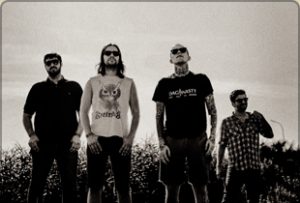

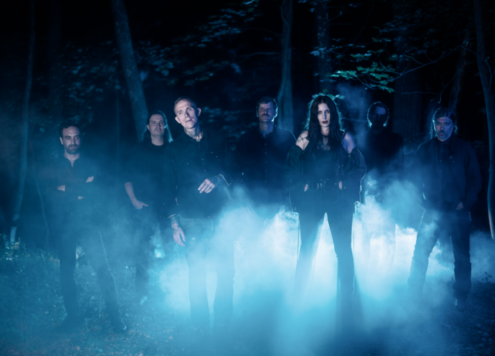
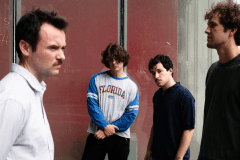
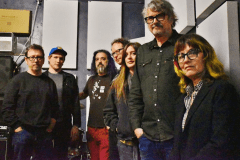

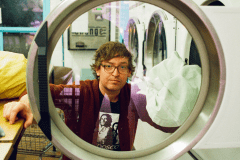

Social Media